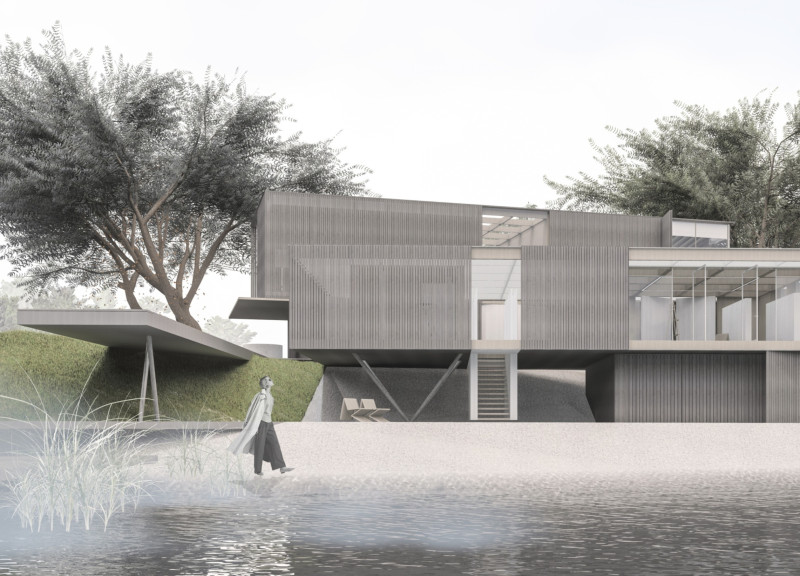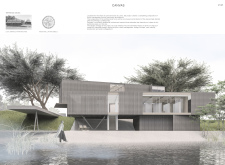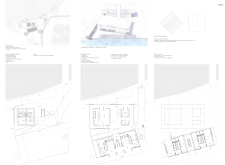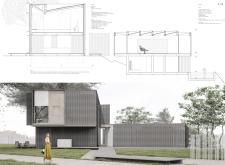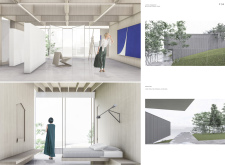5 key facts about this project
The architectural design emphasizes a connection to the environment through thoughtful spatial organization and materiality. The building exhibits a combination of timber, glass, concrete, and steel, each chosen for their functional and aesthetic qualities. Expansive glass panels permit natural light to permeate the internal spaces and provide unobstructed views of the lake, actively engaging inhabitants with the landscape. The timber frame construction allows for a lightweight and efficient structural system, optimized to create large open spaces that foster social interaction.
The arrangement of the spaces is methodical and reflects the anticipated occupants' needs. The lower ground floor houses leisure facilities, including a bar and swimming pool, promoting a lifestyle centered around community engagement. The ground floor is designed as an open plan area that connects living, dining, and kitchen functions while framing outdoor terraces that extend the living space into nature. The first floor provides private sleeping quarters with access to panoramic views, further enhancing the personal experience of the surrounding environment.
A unique aspect of the project is its environmental approach. The design incorporates energy-efficient systems and sustainable material choices, ensuring minimal ecological impact. Rainwater collection systems and native landscaping practices support local biodiversity and promote responsible water management.
This project stands out due to its adaptation of traditional architectural forms into a modern context, creating a balanced dialogue between old and new. The design places emphasis on flexibility, allowing spaces to adapt to varying needs and promoting a lifestyle that is both contemporary and connected to the natural landscape.
For further insights into the "Canvas" project, including detailed architectural plans and sections, visit the project presentation. Exploring these elements will provide a more comprehensive understanding of the architectural ideas and design approaches implemented throughout the project.


